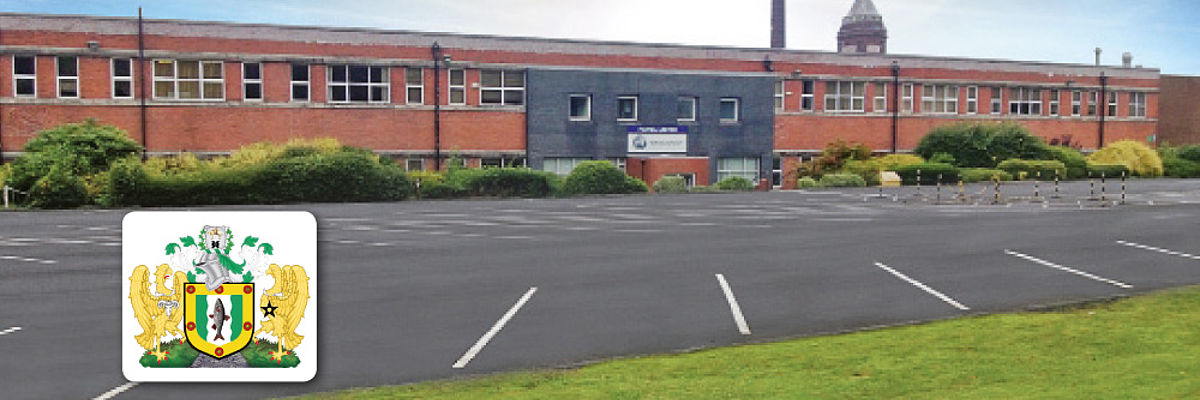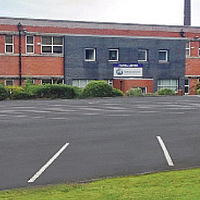Our location in Rochdale, Great Britain, has a very special history: machines used in rubber production have been built here for more than a century. Reason enough to take a closer look at the home and the colourful history of Farrel Ltd. as well as the origins of the legendary Banbury® mixers.
Rochdale, home of Farrel Ltd., is in the north-west of England. The nearest city is Manchester, known throughout the world for its two great football clubs, Manchester City and Manchester United. Incidentally, Rochdale itself has a football club, known to the locals as ‘The Dale’, which currently competes in England’s League Two.
The town currently has a population of 220,000 and is named after the River Roch which flows through the middle of it. Its history can be traced back to the 11th century; the oldest documents still in existence date from 1242. Over the years, Rochdale has been twinned with various other towns around the world, including Peine and Bielefeld in Germany, Tourcoing in France, Sahlwal in Pakistan, Lviv in the Ukraine and Sylhet in Bangladesh.
The roots of the production facilities in Castleton, where Farrel Ltd. now produces a wide range of mixers, stretch as far back as the year 1900. Construction work began on the company building in 1897 on land which was completely undeveloped at the time. The factory was built for David Bridge and his five sons and thus the company was also called ‘David Bridge and Sons’. Back then a factory was built where machinery used for rubber production was made. Even though England still has a large number of traditional businesses established generations ago, it is nonetheless extraordinary that the company has been able to hold its own in the market over the years by specialising in such a niche area. David Bridge Ltd. prospered and employed many people from the surrounding area. In the first decade of the last century the new factory in Castleton already had a reputation which extended far beyond the region: licence agreements with the Birmingham Iron Foundry in Connecticut, USA, which was later acquired by Farrel, permitted the production and sale of the legendary Banbury® mixer, initially throughout the Commonwealth (1918) and later worldwide (1926).
The Banbury® mixer was one of the successful products which began life in Rochdale before going on to take the world by storm – and all of this happened almost 100 years ago. The mixer was one of the most important machines produced by Farrel at the time. It was named after its inventor Fernley H. Banbury, a British engineer who had emigrated to the USA a few years previously. He designed the mixer in 1916 while working for the Birmingham Iron Foundry in Connecticut. It was initially tested by the tyre manufacturer Goodyear. The Banbury® mixer marked an important turning point in the success story of the company – from then on, the rubber industry was barely able to get by without this pioneering invention.
The company continued to grow; in 1939 David Bridge Ltd. employed more than 1,000 people, who all worked in the same factory. One of these employees, Bernard Whitworth, who incidentally also helped to produce this article, even had 18 family members working at the company at times, and they were all taken on at the same time. Bernard Whitworth’s links to his employer go back a long way – in 1910 his grandfather was employed to fit out a factory used for producing cast parts.
After the Second World War, ‘Farrel Bridge’ continued to grow in a way that also allowed it to include machines specially designed for processing plastics in its product range – plastic had previously been processed on the same machines originally used for producing rubber. In 1966 the Farrel Corp. was acquired in the USA by USM (United Shoe Manufacturers) and ultimately merged with the American group of companies Emhart ten years later.
The company mergers and acquisitions continued: in 1997 the Farrel Corp. bought Francis Shaw Rubber Machinery Ltd. in Manchester, mainly to acquire its Intermix technology. Over the period of a year the employees of Francis Shaw were gradually relocated to Rochdale and production of both firms was eventually merged here. The American Farrel Corp. acquired Skinner Engine and Gumix in 2002 and 2006. In 2008, barely one year after the company had been taken over by a private investor group, it was bought by Harburg-Freudenberger Maschinenbau GmbH and now continues its business operations as part of the HF MIXING GROUP.



